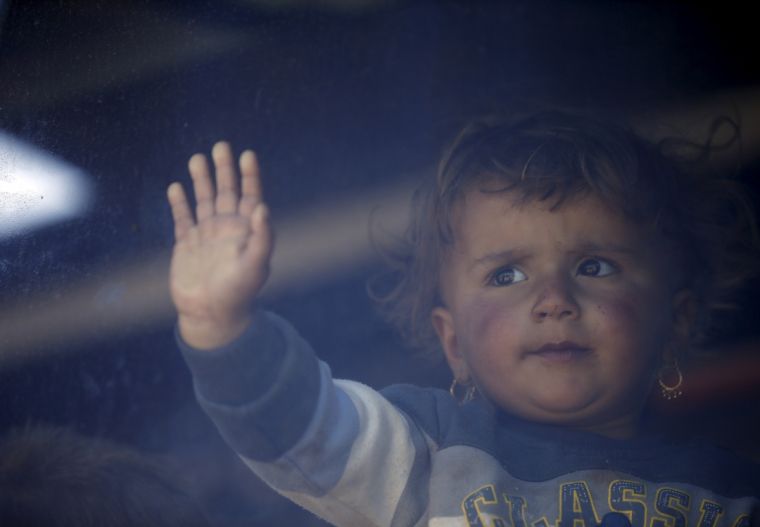Cameron backs down over child refugees: UK will resettle unaccompanied children from Europe
The government has backed down on its refusal to allow unaccompanied child refugees in Europe into the UK.
David Cameron announced during Prime Minister's Questions on Wednesday afternoon that Labour peer Lord Dubs' amendment would not be blocked, paving the way for thousands of refugee children to be accepted into Britain.
The U-turn came in the face of growing opposition to the government's previous stance of only accepting refugees from camps in Syria and the Middle East.

In PMQs Cameron repeated his argument that the UK should not encourage people to "make this dangerous journey" across the Mediterranean to Europe.
However he went on to say he is in talks with Save the Children, a charity that has fronted the campaign to allow unaccompanied child refugees into the UK. He said he would discuss "what more we can do in particular with children who arrived in Europe before the EU-Turkey deal".
He added: "We are going to go round the local authorities and see what more we can do."
Cameron's announcement came after Dubs' initial amendment, which set the number of children to be accepted at 3,000, was defeated in the House of Commons last week.
After Dubs tabled a second amendment that did not specify a number, the government faced pressure from a growing number of its own MPs. If a deal was not reached up to 30 Conservative MPs had threatened to rebel.
David Burrowes, a key Conservative backbencher and a Christian who has visited the Jungle camp in Calais a number of times, told Christian Today it was "excellent news".
He added: "I have concerns over the cut off date in relation to the children's registration which I don't believe match the reality of children who are avoiding going into the system."
Burrowes also told Christian Today he thought Dubs' amendment "could be improved" to have a wider understanding of unaccompanied child refugees.
Heidi Allen, another leading Conservative backbencher who had promised to rebel, tweeted her support for Cameron's announcement.
Lord Dubs added he was pleased with the decision and said it would "ease the plight of some of the unaccompanied child refugees in Europe".
He said: "I trust the Prime Minister will be true to his word and move swiftly to ensure the Home Office works closely with local authorities to find foster families to give these young people a stable and secure home."
After the announcement, Tanya Steele, chief executive of Save the Children, said it would be a lifeline to children who are "now living on the streets, in overcrowded camps or locked in police detention". Steele promised to "work with the government and the UN to ensure these commitments are rapidly implemented".
She added: "Under this scheme there can be no lingering anxieties about whether sanctuary represents a 'pull factor'.
"The UK government has today matched the great leadership they have shown in providing aid and support to Syrian refugees in the region by reaching out a hand to children already on European shores. This announcement echoes Britain's proud history of offering safety at times of great crisis and we want to thank the members of parliament who have led the way in championing this cause, as well as the British public who have opened their hearts to refugee children."
Specific criteria needed for a child to be accepted into the UK is yet to be announced but they must have registered as refugees within Europe before March 20, when the EU-Turkey pact came into force.











